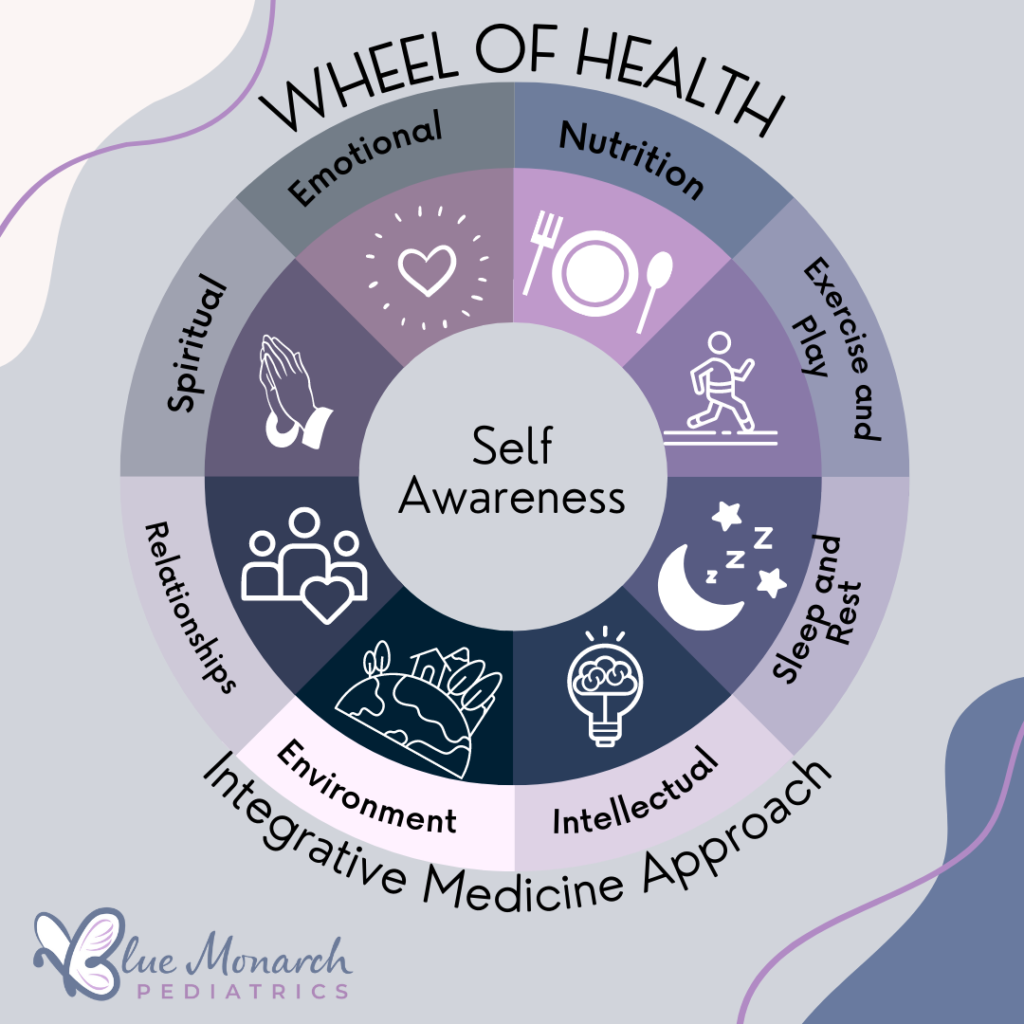Integrative Medicine – What’s in it for my child?
What is INTEGRATIVE MEDICINE?
Integrative Medicine is a healing-oriented medicine that takes account of the whole person and not just the illness or disease. While it seeks to understand the underlying cause of disease, it does so by looking at your complete mind, body and spirit. As shown in our “Wheel of Health”, integrative medicine believes that one’s physical, emotional, spiritual and other needs rely on each other and affects entire well-being especially health. With integrative medicine, you and your provider are equal partners in your healing process. It aims for a well-coordinated care among different providers and institutions to restore health and balance.

How is it different from other approaches?
Integrative medicine uses an evidence-based approach to improve one’s health and wellness. Conventional medicine believes optimal health is the absence of disease; while integrative medicine believes in a satisfactory balance between the physical, mental and social well-being. It “integrates” conventional approaches (such as medication, physical rehabilitation, psychotherapy) and complementary therapies (such as acupuncture, yoga, probiotics) to achieve optimal health and healing. It combines the best of both worlds, with an emphasis on safety and evidence.

What to expect when your child is cared for by a certified integrative pediatrician, Dr. Gonzalez?
When you sign up for membership with Dr. Gonzalez for an integrative pediatric care, she will take an in-depth assessment at your child’s health and make the best evidence-based treatment options available to help his/her physical, mental and spiritual health. She will discuss thoroughly to you (parents) how to implement this whole plan and what resources you have to succeed. Dr. Gonzalez will become your accountability partner with your child’s needs and overall health and make you feel supported throughout the journey. If you are ready to get your child’s health in shape or feel there is something lacking in his/her care, then we can help you.
Blue Monarch Pediatrics: Your child’s health is our TOP PRIORITY
If you are living in Texas and you find yourself seeking the expertise of a child healthcare professional, we hope you consider us at Blue Monarch Pediatrics as your go-to people! We want to make it worth the while to ensure that your child/ren are in their best health condition. We are open for walk-ins and scheduled appointments as well as house calls and even virtual telemedicine where you may consult with us about your child’s health condition within the comfort of your home. Feel free to head to our website and we’d be happy to assist you with any inquiries. We look forward to seeing you and your little bundle of joy soon!






